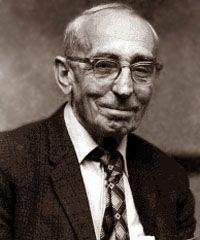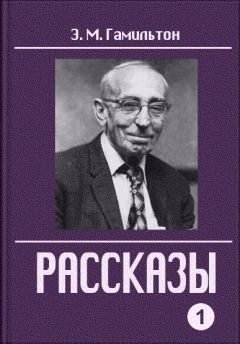Пользователь - o 3b3e7475144cf77c
На сайте mybooks.club вы можете бесплатно читать книги онлайн без регистрации, включая Пользователь - o 3b3e7475144cf77c. Жанр: Прочее издательство неизвестно,. Доступна полная версия книги с кратким содержанием для предварительного ознакомления, аннотацией (предисловием), рецензиями от других читателей и их экспертным мнением.
Кроме того, на сайте mybooks.club вы найдете множество новинок, которые стоит прочитать.

Пользователь - o 3b3e7475144cf77c краткое содержание
o 3b3e7475144cf77c читать онлайн бесплатно
as her polite son-in-law would permit. On the evening of the following day they delivered her
safely in London, and obtained for her a third-row seat on the aisle for the opening
performance of The Dress-Suit Bribe, a play of which she wholly disapproved and did not hesitate
to say so. Next day when most of the London critics agreed with her, she pointed out that
fact to the author, who, being thirty-four years of age, ought to have sowed his literary wild
oats and begun to realize the responsibilities he owed to his class which had built the mighty
British Empire. The daughter of the Vandringhams and daughter-in-law of the Barneses was
as Tory as the worst "diehard" in the House of Lords, and when she encountered a
propagandist of subversion she wanted to say, in the words of another famous queen: "Off
with her head!"—or with "his."
But not all the audience agreed with her point of view. The house divided horizontally;
from the stalls came frozen silence and from the galleries storms of applause. The critics
divided in the same way; those with a pinkish tinge hailed the play as an authentic picture of the
part which fashionable society was playing in politics, an indictment of that variety of
corruption peculiar to Britain, where privileges which would have to be paid for in cash in France
or with office in America, go as a matter of hereditary right or of social prestige. In any case it
was power adding to itself, "strength aiding still the strong."
It was the kind of play which is automatically labeled propaganda and therefore cannot be
art. But it was written from inside knowledge of the things which were going on in British
public life and it told the people what they needed to know. From the first night the theater
became a battleground, the high-priced seats were only half filled but the cheap ones were
packed, and Rick said: "It's a question whether we can pay the rent for two or three weeks,
until it has a chance to take hold."
Lanny replied: "We'll pay, if I have to go and auction off some pictures." No easy matter raising
money with hard times spreading all over the world; but he telephoned all the fashionable
people he knew, begging them to see the play, and he cajoled Margy, Dowager Lady Eversham-
Watson, to have a musicale and pay the Robin family a couple of hundred pounds to come and
perform: the money to go for the play. Irma "chipped in," even though in her heart she
didn't like the play. As for Hansi, he wrote to his father, who put five hundred pounds to his
son's credit with his London bankers—a cheap and easy way to buy peace in his family, and to
demonstrate once again how pleasant it is to have money, heigh ho!
In one way or another they kept the play going. Gracyn, to whom it gave such a "fat" part,
offered to postpone taking her salary for two weeks. Lanny wrote articles for the labor papers,
pointing out what the production meant to the workers, and so they continued to attend and
cheer. The affair grew into a scandal, which forced the privileged classes to talk about it, and
then to want to know what they were talking about. In the end it turned out that Eric Vivian
Pomeroy-Nielson had a "hit"—something he had been aiming at for more than ten years. He
insisted on paying back all his friends, and after that he paid off some of the mortgages of "the
Pater," who had been staking him for a long time. The main thing was that Rick had managed
to say something to the British people, and had won a name so that he would be able to say
more.
VII
The Robins were begging the Budds to take a little run into Germany. Yachting time was at
hand, and they had persuaded Papa to put the Bessie Budd into commission again; they
wanted so much to get him away from the worries of business—and who could do it so well as
the wonderful Lanny Budd and his equally wonderful wife? Lanny might even be able to
persuade him to retire for good; or perhaps to take a long cruise around the world, where he
couldn't be reached by friends or foes.
Germany was in the midst of a hot election campaign. A new Reichstag was being chosen; the
"Cabinet of the Barons," otherwise known as the "Monocle Cabinet," was asking for popular
support. Elections were always interesting to Lanny, and the young people urged him to come
and see. But Irma had another maternal seizure; she said "Let's run down to Juan again, and
come back for a cruise at the end of the campaign." Lanny said: "Any way you want it."
So the party broke up. Fanny took a steamer to New York, the Robins took the ferry to
Flushing, and the Budds took one to Calais. They sent a telegram to the palace in Paris, and
dinner was ready when they arrived. Irma observed: "It's nice to have your own place; much
nicer than going to a hotel." Lanny saw that she wished to justify herself for having spent
all that money, so he admitted that it was "nicer." Jerry was there, and with a lot of checks
ready for her to sign; he wanted her to go over the accounts, but she was sure they were all
right, and she signed without looking. The three went to a cabaret show, very gay, with music
and dancing and a scarcity of costumes; some of it made Irma blush, but she was trying to
acquire the cosmopolitan tone.
The following evening they were at Bienvenu again. Baby was bigger and brighter; she knew
more words; she remembered what you had taught her. She was growing a mind! "Oh, Lanny,
come see this, come see that!" Lanny would have been glad to settle down to child study, and
to swimming and target-shooting with Bub, and talking to the workers at the school; but they
had made a date with the Robins; and also there came a letter from Pietro Corsatti, who was at
Lausanne, reporting the conference for his paper. He said: "A great show! How come you're
missing it?"
At this time there were two of Europe's international talk-fests being held on the same Swiss
lake. For many years such gatherings had been Lanny's favorite form of diversion; he had
attended a dozen, and had met all the interesting people, the statesmen and writers, the
reformers and cranks. Irma had never been to one, but had heard him tell about them, and
always in glowing terms. Now he proposed: "Let's stop off on our way to Berlin." "O.K. by me!"
said Irma.
VIII
They followed the course of the River Rhone, every stage of which had some memory of
Marie de Bruyne: the hotels where she and Lanny had stopped, the scenery they had admired,
the history they had recalled. But Lanny judged it better for Irma to have her own
memories, unscented by the perfume of any other woman. They climbed into the region of
pine-trees and wound through rocky gorges where the air was still and clear. Many bridges
and a great dam, and it was Lake Leman, with Geneva, home of the League of Nations, an
institution which for a few years had been the hope of mankind, but now appeared to have
fallen victim to a mysterious illness. Since the beginning of the year a great Conference on
Arms Limitation, with six hundred delegates from thirteen nations, had been meeting here,
and was to continue for a year longer; each nation in turn would bring forward a plea to
limit the sort of weapon which it didn't have or didn't need, and then the other nations would
show what was wrong with that plan.
Farther up the lake was Lausanne, where the premiers and foreign ministers were gathered to
debate the ancient question of reparations. Lanny Budd greeted his friend Pete and other
journalists whom he had been meeting off and on since the great peace conference thirteen
summers ago. They remembered him and were glad to see him; they knew about his gold-
embossed wife and her palace in Paris; they knew about Rick and his play. Here was another
show, and a fashionable young couple was taken right behind the scenes.
Lausanne is built on a mountainside, with each street at a different level. The French had a
hotel at the top, the British one at the bottom, and the other nations in between; the
diplomats ascended or descended to have their wrangles in one another's suites, and the
newspapermen wore themselves thin chasing the various controversies up hill and down.
Such, at any rate, was Corsatti's description. The statesmen were trying to keep their doings
secret, and Pete declared that when one saw you he dived into his hole like a woodchuck.
Your only chance was to catch one of them in swimming.
It was good clean fun, if you were a spectator who liked to hear gossip and ferret out
mysteries, or a devil-may-care journalist with an expense account which you padded freely.
The food was of the best, the climate delightful, the scenery ditto, with Mont Blanc right at
your back door—or so it seemed in the dustless Alpine air. You would be unhappy only if you
thought about the millions of mankind whose destiny was being gambled with by politicians.
The gaming-table was a powder-keg as big as all the Alps, and the players had no thought but
to keep their own country on top, their own class on top within their country, and their own
selves on top within their class.
IX
The statesmen had to drop the Young Plan, by which Germany had been bound to pay
twenty-five billion dollars in reparations. But France couldn't give up the hope of getting
something; so now with incessant wrangling they were adopting a plan whereby at the end
of three years Germany was to give bonds for three billion marks. But most observers agreed
that this was pure futility; Germany was borrowing, not paying. Germany was saying to the
bankers of the United States: "We have five billions of your money, and if you don't save us
you will lose it all!" The people of Germany were saying: "If you don't feed us we shall vote
for Hitler, or worse yet for Thalmann, the Bolshevik." The statesmen of Germany were saying:
"We are terrified about what will happen"—and who could say whether they were really
terrified or only pretending? Who could trust anybody in power, anywhere in all the world?
Robbie Budd had told his son a story, which he said all business men knew. A leather
merchant went to his banker to get his notes renewed and the banker refused to comply with
the request. The leather merchant told his troubles and pleaded hard; at last he asked: "Were you
ever in the leather business?" When the banker replied: "No," the other said: "Well, you're in it
now." And that, opined Pietro Corsatti, was the position of the investing public of the United
States; they were in the leather business in Germany, in the steel and coal and electrical and
chemical businesses, to say nothing of the road-building business and the swimming-pool
business. Nor was it enough to renew the notes; it was necessary to put up working capital to
keep these businesses from falling into ruins and their workers from turning Red!
Irma knew that this was the "great world" in which her career was to be carried on, so she
listened to the gossip and learned all she could about the eminent actors in the diplomatic
drama. Lanny had met several of the under-secretaries, and these realized that the wealthy young
couple were entitled to be introduced to the "higher ups." Irma was told that next winter
would probably see more negotiations in Paris, and it was her intention that these im portant
personages should find her home a place for relaxation and perhaps for private conferences.
Emily herself couldn't have done better.
Lanny observed his wife "falling for" the British ruling class. Many Americans did this; it was
a definite disease, known as "Anglomania." Upper-class Englishmen were tall and good-looking,
quiet and soft-spoken, cordial to their friends and reserved to others; Irma thought that was
the right way to be. There was Lord Wickthorpe, whom Lanny had once met on a tally-ho
coach driving to Ascot; they had both been youngsters, but now Wickthorpe was a grave
diplomat, carrying a brief-case full of responsibility— or so he looked, and so Irma imagined
him, though Lanny, who had been behind many scenes, assured her that the sons of great
families didn't as a rule do much hard work. Wickthorpe was divinely handsome, with a
tiny light brown mustache, and Irma said: "How do you suppose such a man could remain a
bachelor?"
"I don't know," said the husband. "Margy can probably tell you. Maybe he couldn't get the
girl he wanted."
"I should think any girl would have a hard time refusing what he has."
"It can happen," replied Lanny. "Maybe they quarrel, or something goes wrong. Even the rich
can't always get what they want." Lanny's old "Pink" idea!
X
The assembled statesmen signed a new treaty of Lausanne, in which they agreed to do a
number of things, now that it was too late. Having signed and sealed, they went their various
ways, and Irma and Lanny motored out of Switzerland by way of Basle, and before dinner-time
were in Stuttgart. A bitterly fought election campaign had covered the billboards with slogans
and battle-cries of the various parties. Lanny, who got hold of a newspaper as soon as he
arrived anywhere, read the announcement of a giant Versammlung of the Nazis to be held
that evening, the principal speaker being that Reich Organization Leader Number One who
had received such a dressing-down from his Führer in Lanny's presence some twenty months
ago. Lanny remarked: "I'd like to hear what he's saying now."
"Oh, dear!" exclaimed Irma. "Such a bore!" But she didn't want to be left in a hotel room
alone, so she said: "Let's not stay too late."
During those twenty months a Franco-American playboy had been skipping over the world
with the agility conferred by railroads and motor-cars, airplanes, steamships, and private
yachts. He had been over most of western Europe, England, and New England. He had read
books on many subjects, he had played thousands of musical compositions, looked at as many
paintings, been to many theaters, danced in many ball-rooms, and swum in many seas; he had
chatted with his friends and played with his baby, eaten the choicest of foods, drunk the best
wines, and enjoyed the love of a beautiful and fashionable wife. In short, he had had the most
Похожие книги на "o 3b3e7475144cf77c", Пользователь
Пользователь читать все книги автора по порядку
Пользователь - все книги автора в одном месте читать по порядку полные версии на сайте онлайн библиотеки mybooks.club.




